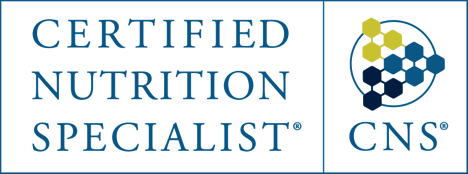Roni Enten Vissoker PhD
CNS, LDN
Individualized Biomedical Nutritionist


Home » Epigenetics and nutrition and genetic syndromes

Epigenetics and the role of individualized nutrition in health and wellness management in genetic syndromes
Genetic syndromes, often seen as fixed conditions dictated by our DNA, might not be as unchangeable believed. Our rapidly growing knowledge in this era of epigenetics, a fascinating field that shows how lifestyle and environmental factors can influence how our genes are expressed, is expanding our awareness of how genes are not necessarily our destiny when it comes to our health. As an integral part of our health environment, nutrition can play a crucial role in shaping outcomes for individuals with genetic syndromes, and targeted nutritional interventions can provide the potential to improve both symptoms and quality of life for adults and children with genetic diagnoses.
What are genetic conditions and syndromes?
Genetic syndromes arise from specific alterations in our DNA, such as mutations, chromosomal abnormalities, or gene deletions. Common examples include Down syndrome (caused by an extra copy of chromosome 21), Prader-Willi syndrome (due to abnormalities in chromosome 15), Fragile X syndrome (resulting from mutations in the FMR1 gene), Angelman syndrome, Kabuki syndrome and more. These syndromes often bring physical, cognitive, and developmental challenges that vary widely among children and adults. Therapeutic approaches for such conditions have been traditionally considered limited to occupational, speech and other therapies, along with medications as needed for symptoms management.
Era of epigenetics: A new understanding of the impact of environment on our health
Epigenetics is the field of study of the modifications that affect our gene expression without changing the underlying DNA sequence. These changes are primarily caused by:
Epigenetic processes are influenced by external factors in our environment such as stress, exposure to toxins (think: heavy metals, pesticides, diesel exhaust, tobacco smoke, polycyclic aromatic hydrocarbons, hormones, radioactivity, viruses, bacteria) and most importantly—nutrition. In the realm of nutrition, it is known that folate, vitamin B-12, methionine, choline, and betaine can affect DNA methylation and histone methylation through altering 1-carbon metabolism. In addition, B vitamins like biotin, niacin, and pantothenic acid play key roles in histone modifications. Bioactive and antioxidant food components found in brightly colored fruits and vegetables and an array of other whole foods directly also affect enzymes that are involved in epigenetic mechanisms. Essentially epigenetics explains a lot of how our food impacts our health.
The Connection Between Epigenetics and Genetic Syndromes
Research shows that even in cases of genetic syndromes, where a specific DNA change causes the condition, epigenetic factors can modify the severity and nature of symptoms which is incredibly important news for affected families. These findings reveal that while genetic syndromes have a fixed basis, their manifestation can be shaped by epigenetic modifications.
According to a 2016 review of literature on Down Syndrome, dietary supplements with plant polyphenol compounds can be neuroprotective and help in preventing or managing certain diseases associated with intellectual disability for which brain mitochondrial dysfunctions and oxidative stress are critical; the group recommended use of polyphenol extracts be considered for therapeutic interventions in early childhood or the prenatal period to rescue brain development and prevent cognitive behavior impairment.
How individualized nutrition can impact on genetic syndromes:
Aside from epigenetic influence, nutrition also has the potential to help improve symptoms of various genetic conditions in numerous other ways. For individuals facing challenges with appetite control (or low appetite) and metabolism, certain diets rich in protein and fiber can stabilize blood sugar levels and aid in weight management. In addition, programs to address gastrointestinal health and the microbiome can potentially affect cognitive function, immune function and more. In addition, nutrients such as antioxidants and fatty acids have been shown to impact behavioral and cognitive symptoms. Other concerns like food selectivity and digestive dysfunction can also improve greatly with the implementation of an individualized nutrition plan.
Conclusion
Genetic syndromes may originate in our DNA, but epigenetics proves they are not entirely set in stone. By harnessing the power of nutrition, we can influence gene expression and improve symptoms, offering hope and better outcomes for individuals and their families. While challenges remain, the combination of ongoing research and practical interventions makes this an exciting time for those working to optimize care for genetic syndromes.
If you or a loved one is navigating a genetic syndrome, I would love to hear from you and share how individualized nutrition can help and empower you and your child to lead healthier and more fulfilling lives.
References
Sang-Woon Choi, Simonetta Friso, Epigenetics: A New Bridge between Nutrition and Health, Advances in Nutrition, Volume 1, Issue 1, 2010, Pages 8-16.
Vacca RA, Valenti D, Caccamese S, Daglia M, Braidy N, Nabavi SM. Plant polyphenols as natural drugs for the management of Down syndrome and related disorders. Neurosci Biobehav Rev. 2016 Dec;71:865-877. doi: 10.1016/j.neubiorev.2016.10.023. Epub 2016 Nov 5. PMID: 27826066.
Comments Off on Epigenetics and nutrition and genetic syndromes